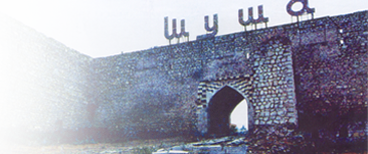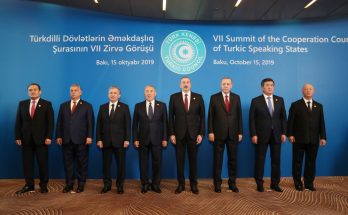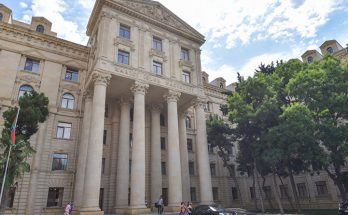 Interview with Sergey Markedonov, Chief of International Problems Department at the Russia-based Institute of Political and Military Analysis.
Interview with Sergey Markedonov, Chief of International Problems Department at the Russia-based Institute of Political and Military Analysis.
– How do you assess signing of Turkey-Armenia protocols?
Sergey Markedonov: This is a very important step forward since we are dealing with the signed legal documents now, which clearly stated what obligations the parties undertake, but not a “road map” or a declaration of intent.
As for the essence of the protocols signed, I think, Armenian-Azerbaijani problems were separated from the Armenian-Turkish issues. In particular, the Turkish-Armenian protocols do not mention the problem of Nagorno-Karabakh. The question of territorial integrity in the protocols is also mentioned only in the context of Turkish-Armenian relations.
Q: What can you say about the statements that prime minister, president and foreign minister of Turkey made both before the signing of Turkish-Armenian protocols, and after it claiming that Turkey will never take steps that do not meet Azerbaijan’s interests?
A: Of course, the mere signing of the Turkish-Armenian protocols can lead to some disappointment in the Azerbaijani society. Turkish Prime Minister Recep Tayyip Erdogan and Foreign Minister Ahmed Davutoglu have stated on numerous occasions that without a solution to the Karabakh conflict, Turkish-Armenian border will not open. But, as I mentioned, Turkish-Armenian protocols do not mention Karabakh issue. Of course, this does not mean that the Nagorno Karabakh conflict is forgotten by Turkey.
After all, there are politicians in Turkey eager to promote development of Turkish-Azerbaijani relations and the idea of Turkic brotherhood. Simply, most likely, the Nagorno Karabakh problem will not be raised so often as it was before the signing of Turkish-Armenian protocols. In these circumstances, in my opinion, it would make sense for Azerbaijan to intensify the negotiation process to settle the Armenian-Azerbaijani Nagorno-Karabakh conflict.
Although, developments in this matter depends on further internal dynamics in Armenia and Turkey and on whether the Turkish-Armenian protocols will be ratified by the parliaments of two countries.
Q: Do you think the protocols will be ratified by the parliaments of Turkey and Armenia?
A: It is indeed a very important point. After all, there is enough skepticism to the protocols both in Armenian and Turkish society. At the same time it would be hasty to talk about the opening of Turkish-Armenian border without ratification of protocols by parliaments of these countries. In the case of the Armenian parliament, we can assume that because of absence of representatives of the Armenian National Congress in it and insufficient power by the Dashnaksutun party for its failure, the ratification of the Turkish-Armenian protocols can take place very easily.
As for the Turkish parliament, the situation is more complicated. For there it will be more difficult to build a line of administrative pressure on MPs, therefore, there are different possible options of the situation.
Q: Is current visit of President Serzh Sargsyan to Russia is linked with the signing of Turkish-Armenian protocols, and how did it happen that the United States and Russia could reach an agreement on this issue?
A: Of course, the Turkish-Armenian protocols will be one of the most important matters during the Armenian president’s visit to Russia. As for the second part of your question, the development of the situation in the Caucasus is determined solely by confrontation between the superpowers. Moreover, since the 1990s, the position of the United States and Russia coincide on many issues. Here and now, the superpowers have similar positions on Afghanistan and Iran.
Therefore, it is not surprising that Russia and the United States do not disagree either in terms of normalizing of Turkish-Armenian relations.
/Day.Az/




